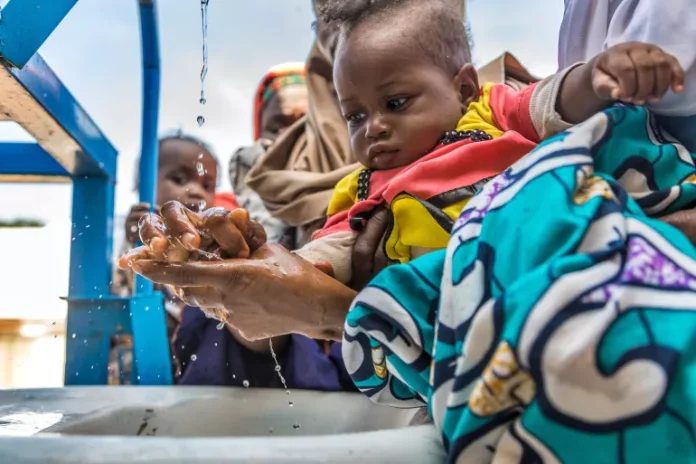As the world commemorates Hand Hygiene Day, Delta State Commissioner for Health, Dr. Joseph Onojaeme, has emphasised proper hand hygiene as a powerful tool in the state’s drive for safer, infection-free healthcare.
Addressing the occasion observed every May 5, Onojaeme highlighted the life-saving potential of proper hand hygiene. “We join the rest of the world in marking World Hand Hygiene Day, a reminder that one of the simplest acts, washing our hands, remains one of the most powerful tools in the fight against infection,” he said.
Dr. Onojaeme highlighted this year’s theme, “It might be gloves, it’s always hand hygiene”, noting that while gloves are necessary in certain medical situations, they do not replace the need for proper hand hygiene.
“To the nurses, doctors, midwives, lab staff, cleaners, and all frontline workers, you are not only caregivers, you are gatekeepers of safety. Clean care is not someone else’s job. It is in your hands. Whether it’s soap and running water or alcohol-based hand rub, we can make the biggest difference,” he stressed.
Also speaking, the State Infection Prevention and Control Focal Person, Dr. Idoteyin Enyi, underlined the importance of deliberate and consistent hand hygiene. According to her, “We do not want to spread germs; we want to be spreading smiles. Wash your hands with soap under running water for 40 to 60 seconds or use alcohol-based hand rub for 30 seconds, making sure to cover all surfaces.”
For the World Health Organisation (WHO), the day was not only about raising awareness but also raising standards. WHO Acting State Coordinator, Dr. Moisule Ganga, noted, “We implore our health workers, the heroes of infection prevention, to be champions of quality care. And we educate our communities, especially our children, so they know the power of clean hands from a young age.”
The State Epidemiologist, Dr. Mildred Okowa, echoed these sentiments, calling on both health institutions and communities to treat hand hygiene as a culture, not just a campaign. “Proper hand hygiene can prevent up to 50 percent of infections, including drug-resistant ones. Let us work together to make clean hands a daily habit in our hospitals, our homes, and our schools. Infection prevention begins at the fingertips,” she said.


